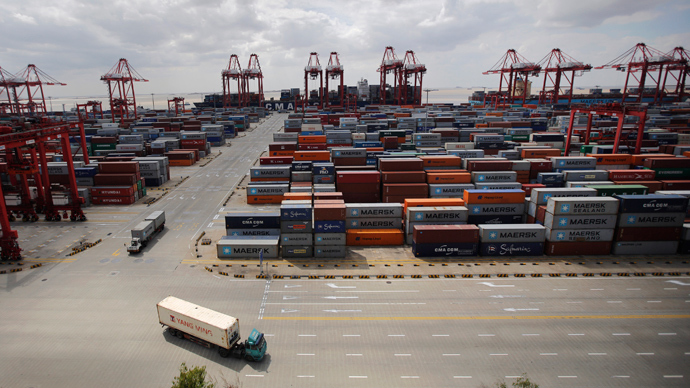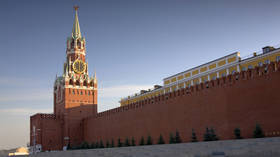It is in China interest to ‘buy assets, keep them going’

Since purchasing US government securities to manage huge surpluses has not produced much benefit, Chinese companies are acquiring assets abroad for a higher return on investment, economist Roger Nightingale told RT.
RT: It seems like China doesn't really have a choice,
does it?
Roger Nightingale: China's got a lot of money, it's got to
do something with its money. Well it's been doing in the past,
it's been buying rather low yielding America government
securities. That hasn't produced much benefit for China. What has
been doing more recently and I think it'll carry on doing is
buying into companies which issue much higher yields. Britain has
been a beneficiary of this so far, but I think the rest of the
world will also share in this largess.
RT:Is it all about economics? China is buying a
trillion in US debt, didn't give it a whole lot of influence. But
buying up industry, that's bound to give it some kind of a
clout.
RN: If a country has a large surplus, then it has to do
something with that surplus. There is no possibility of it not
doing anything with its surplus. And the only possibilities are
to buy securities or to buy assets. I think in fact it's in
China's interest to buy the assets. Frankly, it is in most
country’s interests that it buys the assets and keeps them going.
One of your previous interviewees was talking about the British
industrial base being a holdout on the country. The industrial
base would have been a holdout had the company's gone bust.
Having had Chinese investment in them, having kept the companies
going. The industrial base is being less holdout, but remember
Britain doesn't have a particularly good industrial base. What we
do well is financial services and therefore we have to expect
that the other part of our industry will do what it needs to be a
part of the economy, and it needs the help from those overseas.
Just as for instance Germany doesn't have financial
services.

RT:When China was investing in Africa many were saying that China was exploiting that situation. But here you are saying that coming to the UK it's a different kind of set-up. So, are we saying if it’s good for us, it’s a benefit, if it’s good for them, it’s exploitation?
RN: No, I never used such terms and I wouldn't. I mean frankly the African countries didn't have to sell out to the Chinese. They could've chosen not to, they had the choice, they chose in certain circumstances to sell out. But this is absolutely normal. The country is buying raw materials and the country is using raw materials, and having bought the actual material you feel tempted by the company that produces the raw material. Britain did that over a long period of time, Germany's done it. America has done it. Japan has done it. It's only to be expected that China is the new up and coming industrial country that will also do it.
The statements, views and opinions expressed in this column are solely those of the author and do not necessarily represent those of RT.












